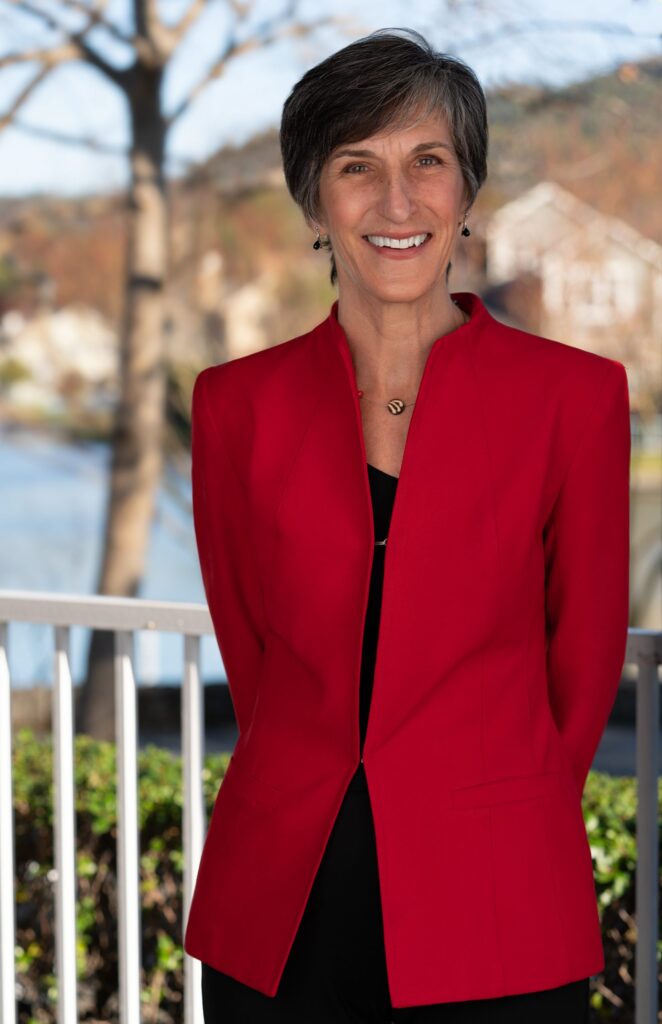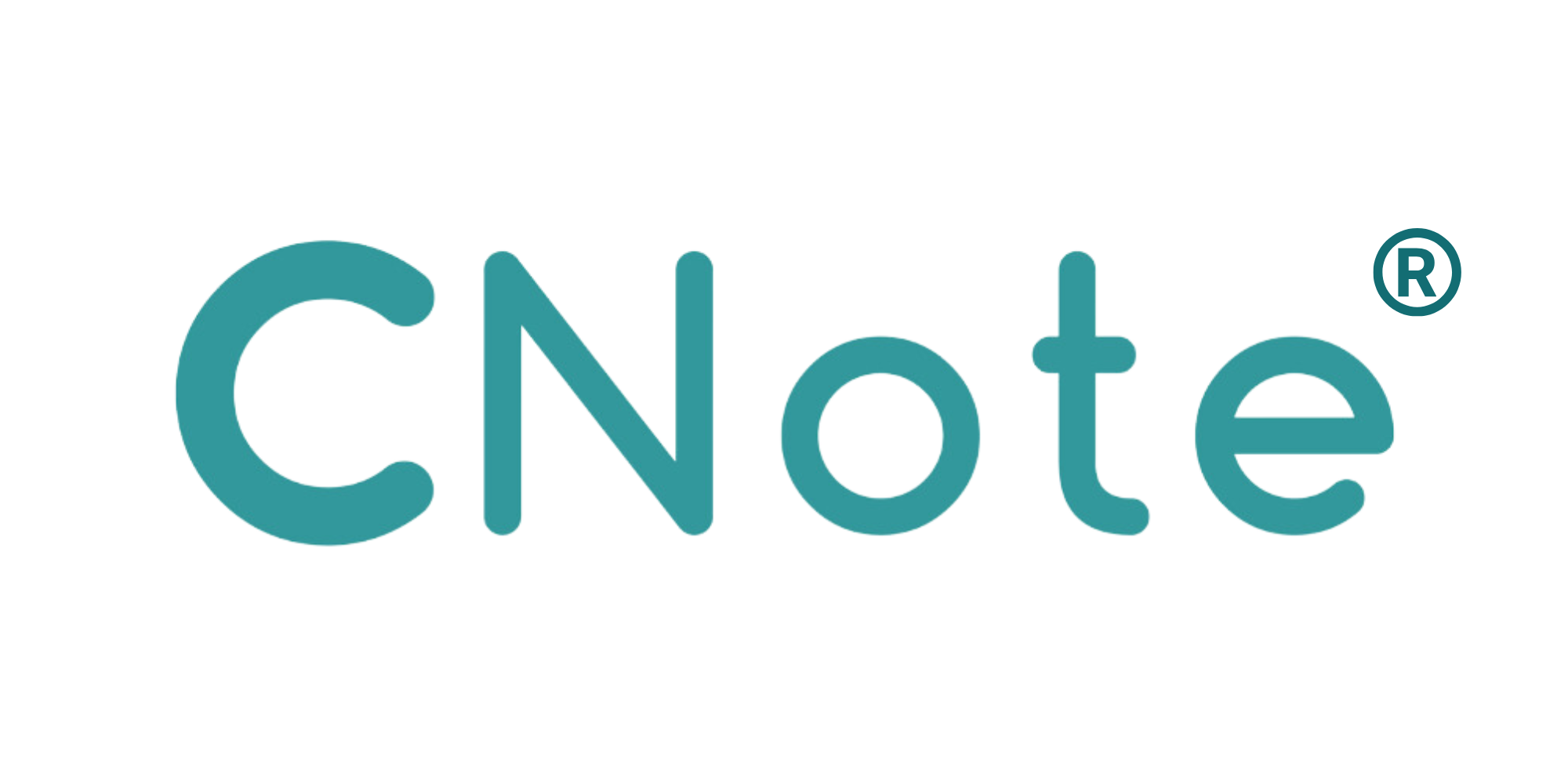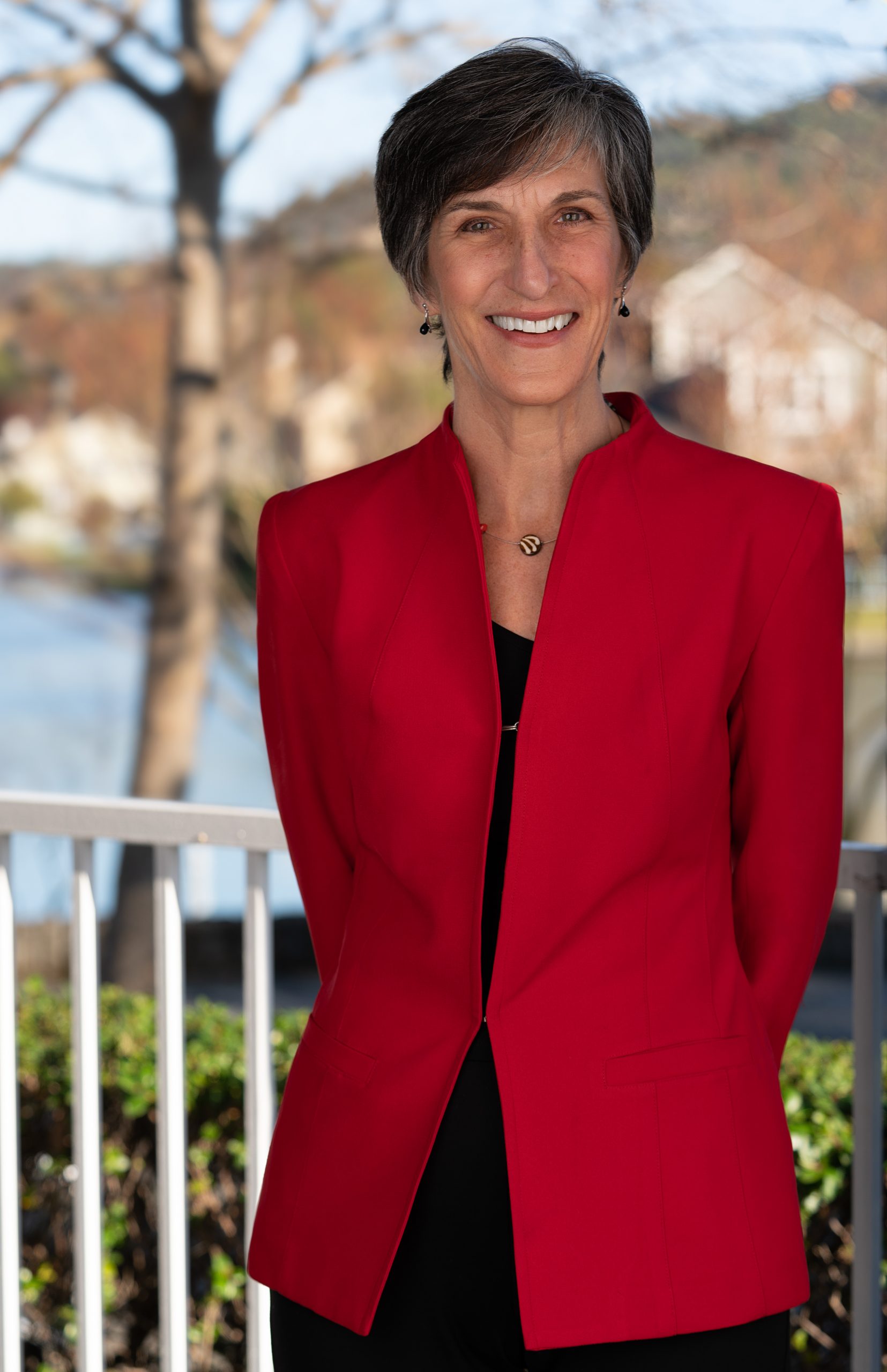Janine Firpo is an author and speaker who spent more than 20 years in executive roles at Hewlett-Packard, the World Bank, the Bill & Melinda Gates Foundation, and more. She is a values-aligned investor in companies that make the world a better place and is passionate about teaching women to learn how to invest their own money. Embodying these principles, Janine is releasing her first book, Activate Your Money – Invest to Grow Your Wealth and Build a Better World in May of 2021.
Since “retiring” from her former career, Janine has been on a personal mission to invest all of her assets in alignment with her values. In 2017, she left a 35-year career in technology and international development to focus on creating a more just and equitable society through financial investments. This mission also helps women find the confidence to take control of their money and use it to change the world.
We caught up with Janine to talk about values-aligned investing, women in finance, and her new book. We also got the chance to hear her thoughts about the dangers of greenwashing, the significance of the UN Sustainable Development Goals, and the reality that women will soon be a financial force.

CNote: How’d you get to where you are today?
Janine Firpo: I started out my career in the early 1980s in the high-tech sector in Silicon Valley. I was on an upward trajectory, but I’d always loved traveling. In 1995, I quit my job as a VP at a startup, and I did a solo backpacking trip through Sub-Saharan Africa for four months. While I was there, I saw poverty like I had never seen it before. I came back from that trip and decided I wanted to work more in these environments and have impact with my life and work.
It took me almost a year to figure it out, but after a lot of inquiry, I ended up making a complete transformation in my career and started looking at the role that technology and business play in solving poverty in developing countries. I became part of the early conversations in Silicon Valley around how companies could do well with their business while also doing good in the world and trying to tackle some societal challenges.
At some point along the way, I had a realization that those early conversations around impact investing were pretty much in the realm of institutional investors and high-net wealth individuals. I wanted to figure out how I could invest my own money in a way that aligned with my values. If I’d made this huge shift in my career and taken an initial pay cut to do something that mattered to me and gave my life purpose, then why was my money working against me?
CNote: What did you end up doing?
Janine Firpo: When these conversations started, there was no proof that this kind of investing actually worked, and I give a lot of credit to those individuals who were willing to take these risks and start to prove that values-aligned investing actually could provide a viable financial return. I started getting interested in Charly and Lisa Kleissner, who had built a portfolio of ~$10 million investing this way. That’s when I decided I wanted to try to put my money where my mouth is.
That started a journey to figure out how to move everything to align with my values, from my cash to my public holdings in the stock market to bonds and real estate investments. I had three different financial advisors along the way: all of them were well-known in this space, and none of them got me where I wanted to be. So, when I retired about three years ago, I took my assets back, and I started moving my money more aggressively into alignment with my values. I realized a couple of things. One, it’s much more available than it used to be. Two, virtually anyone, even somebody who is a non-accredited investor, can make these kinds of decisions with their money. I decided to help these other people, particularly women, make these kinds of decisions, and that’s what led me to start writing Activate Your Money.
CNote: Can you tell us more about Activate Your Money?
Janine Firpo: I wrote the book in partnership with 150 women, and a few men. It’s called Activate Your Money: Invest to Grow Your Wealth and Build a Better World, and it’s going to be published in May of this year. The purpose is really to help women who have been left out of the financial conversation to take control of their money, to learn how to invest with confidence, and to give them the options they need to make investments in the things that they care about.
When the book is released, there will also be a companion website that has tools, worksheets, and resources, to help women actually take their knowledge and the book and move it into action. There will also be companion curricula that women can use to form together in clubs to teach themselves and work together learning these materials. All of the curriculum and materials will be free. The goal is really to help catalyze a movement that I think has already started, and it’s a movement of women who are moving their money into alignment with their values. My hope is to provide these women with the resources they need to be successful in doing this kind of investing.
CNote: What led you to write a book with more than 100 other people, and what was your process like?
Janine Firpo: At first, I thought I’m going to write this book by myself. I wrote the chapter on cash, and it took me a very long time to do it. I realized that I know so many smart women who know so much more about these topics than me. I started reaching out to some of the women I knew, and I’m really happy that they piled in. I had 40 or more women who are certified financial advisors, certified financial planners, and financial leaders who wrote early drafts of different parts of the book for me based on their areas of knowledge and specialty. I’m not a certified anything. I’m not writing about things that are impossible. I’m writing about things that I’ve done with my own money.
However, because I think it’s really hard to read a book that has a bunch of different voices, I rewrote all of those chapters in my own voice. But I wanted to make sure I was hitting the mark, so I sent every chapter out to about 25 different people who provided feedback on early drafts. Those were primarily women — women from all different walks of life. Based on that feedback, I rewrote it. So, I had women help me as writers, I had women help me as reviewers, and I had women help me as thought leaders. I could not have done this book without them. It’s all of our book. This book was a collective effort, and I could never have done this alone.
CNote: What are some of the misconceptions around impact investing that you see today?
Janine Firpo: There are still people who think that you have to give up financial return if you invest this way, and that’s a significant misconception. The other thing is I personally have a hard time with the term impact investing, and I do for a couple of reasons. First, there is an implicit assumption in impact investing that the only kind of impact your money can have is a positive one, and that’s actually not true. Your money is having an impact regardless. The question is whether you are consciously aware of that impact and whether or not that impact is something that supports your goals and hopes for the world.
When people talk about impact investing, although they often are referencing an entire portfolio, it doesn’t take long in a conversation for it to turn toward private equity. If you’re a high-net wealth individual, then you have the capacity to go out and do some pretty interesting stuff with private debt and private equity. This leaves average Americans out of the conversation. So, I have a challenge with the whole terminology around impact.
CNote: What term do you think we should use to replace the term impact investing?
Janine Firpo: I use the term values-aligned investing. How we choose to invest our money is very personal. Each person makes different choices. I think this has been a challenge in the whole “impact space”: the questions of what are the values, how do we measure those, and what should those values be? I don’t think we should be determining what people’s values are. People are going to determine that. I think that when we invest in a way that actually speaks to our values and is in line with who we are and how we show up in the world, that leads to a much more positive set of feelings around our money. So, personally, I like values-aligned investing, and I am on a mission to get that terminology to be more used. I think it speaks to the personal nature of it and to the hearts and minds of the individuals that we’re trying to reach.
CNote: What issues do you think values-aligned investing are best situated to address?
Janine Firpo: It can address a number of different issues, including the Sustainable Development Goals that were created by the United Nations. These are 17 goals that speak to significant social issues that we have around the world. Things like poverty, gender equality, social justice, climate change, et cetera. Personally, what I have done is I’ve chosen five of them and said “these are the things that matter to me.” The Sustainable Development Goals are a great starting point to think about your tangible values so that you can then make your investment decisions.
CNote: Where do you see values-aligned investing going in the next 10 years?
Janine Firpo: I’m really encouraged. In the last month alone, it feels like we have really jumped over a major chasm. If you just look at the numbers, at the end of 2018, institutional investors sustainably invested one in every four dollars. At the end of 2019, that leapt to one in three dollars. That’s significant, and the amount of money that is moving into ESG or other types of sustainable investing is growing exponentially. Then another thing that’s interesting to me is the way that business and financial leaders are stepping up to the plate and saying things that I would not have imagined were possible. For example, the Nasdaq wants to change the rules so that companies have to have two diverse board seats, and General Motors said they’re going to stop production of gas and diesel cars by 2030. That’s incredible.
In terms of venture capital in this country, in 2019, only about 2.5% of all the venture capital went to female founders, and even less went to people of color. What we’re seeing now is a growing awareness that we have got to get over our implicit and subconscious biases around who is getting the capital to build businesses in this country, and I think we’re seeing a groundswell there as well. I think we’re going to just see this area grow more and more.
CNote: Thinking about greenwashing and bad actors in this space, do you think investors will one day be able to measure the impact of their investments in a standardized way?
Janine Firpo: First of all, I think greenwashing is a problem, and I know that there are people who have been working for decades on trying to come up with ways to measure impact the same way we measure financial return. It’s difficult, but progress is being made. I trust that we will eventually get to the bottom of this problem and we will have standardized ways to measure company impact. It’s just going to take time. We’re going to identify companies that are truly bad actors and are doing the wrong things in the way that they are claiming their positive impact in the world. Fortunately, there are a growing number of tools to help us to identify these companies and funds. I know some people want a perfect solution today, but I don’t think that’s possible yet. Our measurements are still flawed, and we have to recognize that we are moving toward something better, but we shouldn’t throw out the baby with the bathwater until we get to perfection.
CNote: What’s your long-term vision with Activate Your Money?
Janine Firpo: I hope the day comes that when people talk about investing, what they’re talking about is investing in your values. There should be only one conversation: this is how you invest in alignment with your values. Another long-term goal is women’s empowerment. I’m targeting women for a couple of reasons. One is because women have largely been left out of this conversation. We are not confident when it comes to investing, even though when we do invest, we outperform men. I want to help women recognize that we have this ability: we’re smart, we’re capable, and we can learn how to invest. We do it differently, and that’s ok. Women need to embrace that, not run away from it. There’s not enough information out there to help the average retail investor, so that’s what I’m trying to simplify and make more available.
CNote: What are your thoughts around the number of women pursuing careers in finance?
Janine Firpo: We need more women involved across the board. If you look at financial advisors, almost 80% are men. If you look at the number of women who actively manage funds or are involved in fund management, it’s like 2% to 3%. So, I think it’s really important that we bring more women into the financial industry. I know that there are folks out there who are working on that. I just read something the other day about a group that is educating women at the college level and encouraging more women at that level to get involved in finance.
Part of the challenge is the way the industry itself works. As someone who came up in the tech industry, I believe that one of the things that cause women to get out of some of these male-dominated industries is the business environment. It is not welcoming to women, and it can actually be a soul-draining adventure because it doesn’t speak to the things that we care about or the things that we value. I do think, however, that as more women move into these roles, more change will come. It’s going to take hard work to make that happen, but I think that as we’ve seen with women who are moving into leadership positions in any vertical when women are in leadership roles, things are different.
CNote: What do you think the future of investing looks like for women?
Janine Firpo: If women took control of our money right now, we could control 50% of the wealth in this country. That will go up to 65% in the early 2030s. So, women are a financial force to be reckoned with if enough of us start moving our money this way, and we can have a significant impact on what’s important in the economy. We can start to use our financial voices to say “we care about our communities, we care about supporting other women, we care about seeing women empowered, and we care about ensuring that this planet is left in a way that will help our children, our grandchildren, and future generations to live happy, fulfilled lives.”


